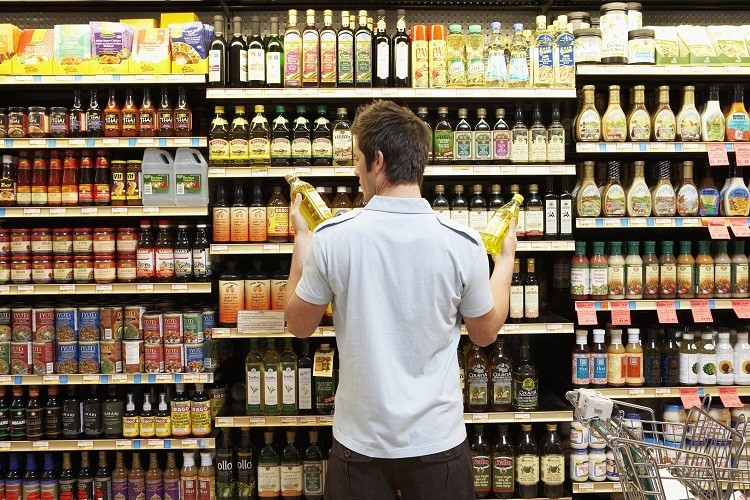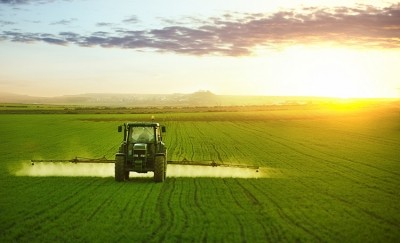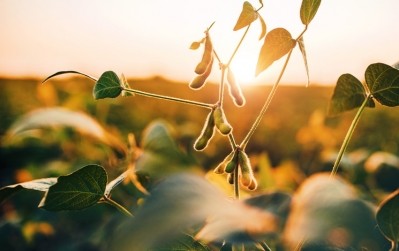From surging energy prices to stockpiling: How is food retail most affected by the Ukraine conflict?
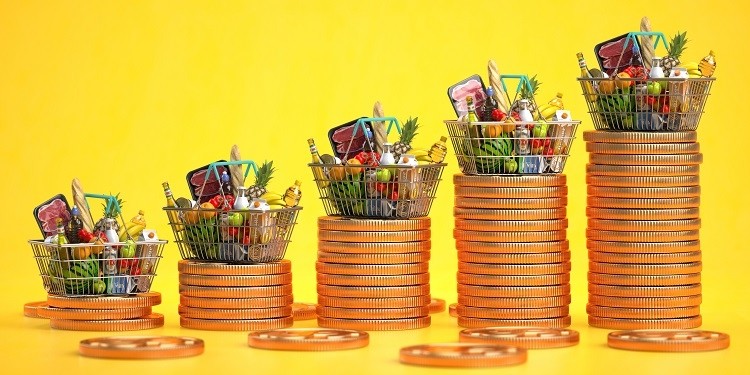
In a matter of days, Russia and Ukraine will have been at war for four months.
The conflict’s impact on the food industry in Europe is far-reaching: from commodity shortages to forced product formulation and price hikes.
The food retail sector has experienced these challenges and more. Situated simultaneously as the ‘end of the food chain’, while also being ‘consumer-facing’, means that retail must manage crises from multiple angles, suggested Miriam Schneider, Director of EU Affairs at the Federal Association of the German Retail Grocery Trade (BVLH).
For Schneider, and the trade association’s members, the most important challenge lies in energy.
“Retailers are part of critical infrastructures and being at the end of the chain facing the consumer, they are affected three-dimensionally by rising energy prices,” Schneider told delegates at last month’s European Food Forum (EFF) event.
In what ways exactly is the energy crisis impacting food retail? And what are the other principal concerns for the sector?
Energy crisis: a triple whammy effect
“First and foremost, I think energy is the most important factor,” explained Schneider at the EFF event.
Energy prices were already on the way up prior to Russia’s invasion of Ukraine in February of this year. But as Russia is a major supplier of oil, gas and coal, sanctions placed on the country by the EU is limiting trade between the two.
Reduced supply means higher energy prices for retailers, their suppliers, and of course, consumers. “On the one hand, suppliers are pricing in the increased energy prices, which means they are already considerably more expensive at the purchasing stage.
“And then retail is one of the most energy intensive sectors, in terms of consumption. They have cooling costs and costs for their stock warehouses,” explained Schneider.
It has been well reported that shoppers, too, are feeling the pinch. “Inflation and rising energy costs are also having an impact on consumers: on their buying power and buying restraint. We are already noticing [a change in behaviour], especially in the long food sector.”
This triple whammy effect would undoubtedly be exacerbated by cutting off gas supply from Russia, without an immediate replacement.
“A gas embargo has to be seriously thought about from our perspective,” added BVLH’s Schneider.
Commodity shortages: from wheat to sunflower oil
Ukraine is a major producer of sunflower, corn, soybeans, wheat and barley. Considered the ‘breadbasket’ of Europe, more than 70% of the country’s land is dedicated to agricultural production.
Of all the crops that Ukraine cultivates, it is best known for sunflower seed production. According to Statista, in the 2021/2022 crop year, Ukraine had the highest production volume of sunflower seeds of any country in the world.
Disruptions to Ukraine’s exporting capabilities as a result of Russia’s invasion means that the world is now in short supply. Consumers will likely have already noticed a shortage of sunflower cooking oil on-shelf.
This also creates a challenge for food formulators, as some have been forced to replace the ingredient with alternative vegetable oils. The most common replacements so far appear to be palm oil and coconut oil.
For retailers, this concerns their own-brand products. But of course, the concerns are the same for branded alternatives, including ensuring food ingredient and nutrition labels mirror their product’s contents.
“There is a big need for flexibility in terms of labelling rules,” stressed Schneider. “We are very grateful for all the efforts the Commission has undertaken, as well as our own government in Germany, to encourage the control authorities to adopt a flexible approach.”
For BVLH, it is imperative the sector remains ‘vigilant’ in protecting Europe’s internal market. “We need a harmonised approach [to labelling], or alternatively, it that’s not feasible, a clear vote for a mutual recognition approach,” she told delegates at the event.
The European affairs expert revealed there have been situations whereby ‘totally legally-labelled’ products from Belgium weren’t accepted in the Netherlands because of a different labelling approach.
“The internal market must be kept high, and we must do all [we can] to prevent obstacles of that sort.
“Of course, no compromise must be made in terms of food safety, and allergens must be labelled.”
More stockpiling…
While countries move towards a post-COVID ‘new normal’, increasingly reversing coronavirus-related restrictions, some consumer habits are dying hard.
The act of stockpiling has seen a resurgence across Europe. Where in the early days of the pandemic, evidence was seen in empty shelves – notably where toilet paper and canned goods were once stocked – across the bloc.
Since the first days of the Ukraine-Russia conflict, however, consumers have been more concerned about the availability of wheat-based products. Ukraine was, after all, the sixth-largest exporter of wheat globally. Last year, the country produced around 33m tonnes, of which it exported around 20m tonnes.
“Very often, gaps have been made on-shelf by stockpiling behaviour,” explained Schneider, suggesting that retailers have been unable to keep up with demand for certain products.
“It’s simply not foreseeable that one household buys 10 packs of flour at a time. It means that planning must be adapted and supply chains…adjusted. That’s a challenge for retail companies, but I think they’ve managed quite well so far.”
Schneider urged delegates, made up of food industry stakeholders and MEPs, to push messaging that stockpiling is unnecessary.
“There is no need to stockpile, because that adds an additional layer of tension to supply chains, which is not linked to any developments in the war.”
‘We need common, harmonised solutions’
Logistics is another challenging factor for retailers, who currently face the same problems as food producers: packaging materials and raw materials are ‘massively’ more expensive and delivery ‘often delayed’.
Further, retailers are facing staff shortages, and continue to experience stock shortages as a hangover from the pandemic. On the global stage, current container congestion in Shanghai isn’t helping the problem, Schneider continued.
“And many Ukrainian truck drivers are now soldiers, so that all adds, of course, to the tensions retailers are facing.”
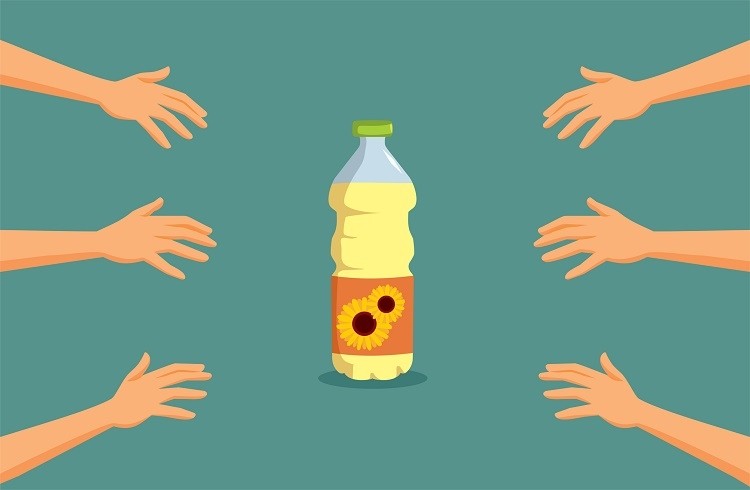
How can all these issues be resolved? BVLH’s Schneider suggested stakeholders aim for ‘common’ solutions.
“We need common, harmonised ways of dealing with it,” we were told. “We need to uphold the internal market and the free flow of goods. We must prevent protectionism and speculation [and allow for] the reorganisation of supply chains.”
And all this must be achieved within the framework of the Farm to Fork Strategy, Schneider stressed.
“This must not mean that we abandon the Farm to Fork Strategy or the objectives to transform our great cultural and food production system, in terms of getting ready for the challenges we have in the climate crisis. I want to stress this point very firmly.”
